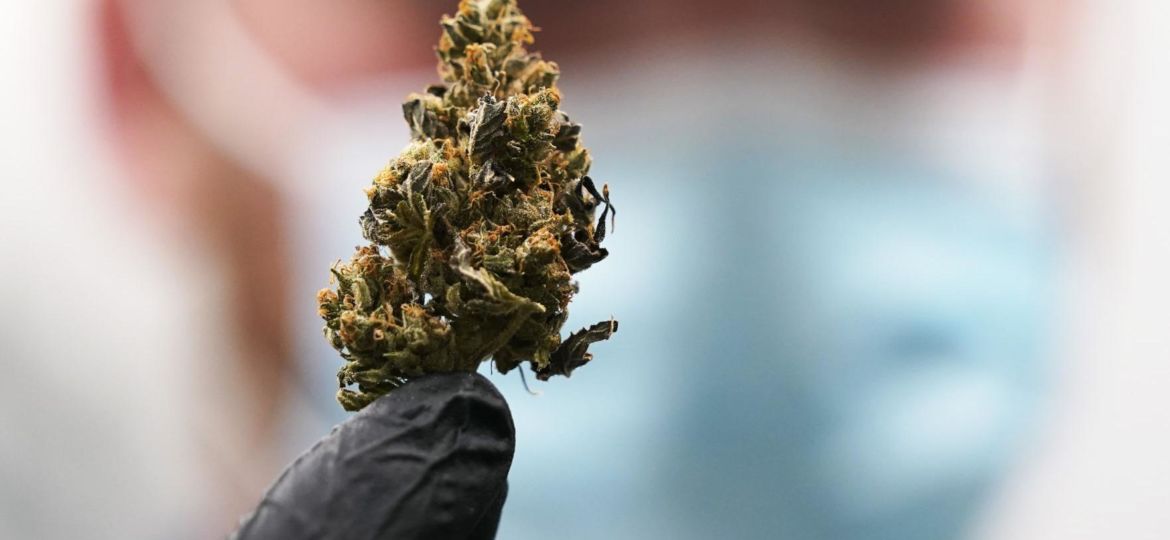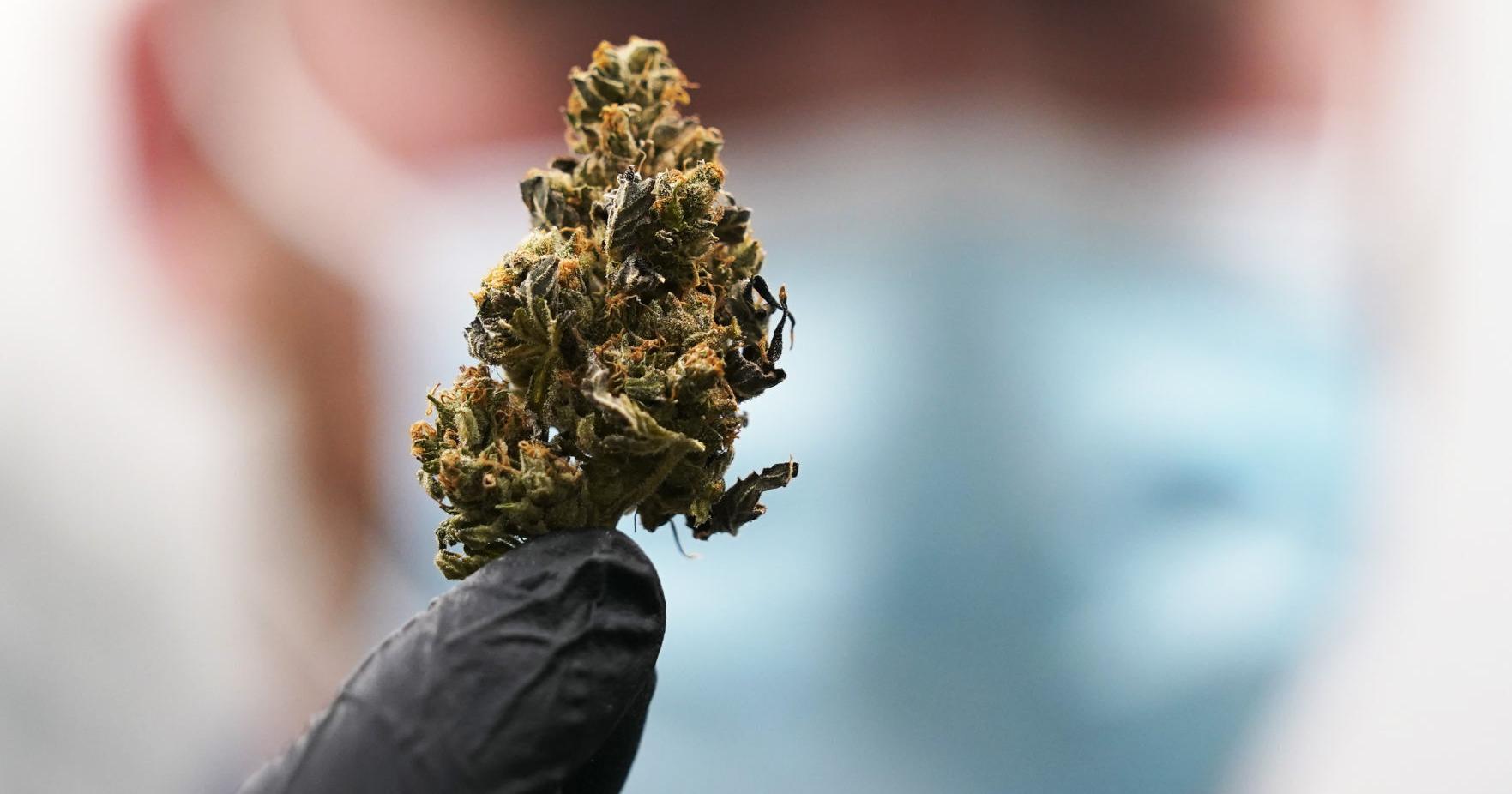

TUPELO • As the medical cannabis industry in Mississippi steadily moves toward the day physicians can start prescribing marijuana, health care providers are walking a tightrope when discussing the impact on medicine in the state and whether they will actually prescribe it.
While the Legislature passed a law this year to make medical marijuana legal, the program will not actually go into full effect until later this year at the earliest. Between now and then, growers and suppliers are getting licensed and setting up their operations, while the Mississippi State Department of Health continues to outline the rules and regulations governing the program.
Doctors are spending this time educating themselves further on the use of medical marijuana and specifically how the program will work in Mississippi.
Many are also trying to decide whether they will prescribe it.
The Daily Journal reached out to almost two dozen specialists, physicians and clinics in Northeast Mississippi to gauge thoughts on the process. Many did not respond to multiple attempts to reach them. Others indicated they would not comment. Here is what we learned.
Healthcare systems cautiously await developments
Large healthcare systems are being extremely cautious when speaking publicly about medical marijuana, going so far as to preventing their doctors from talking to the press.
Northeast Mississippi Medical Center has a host of physicians practicing in all fields, from oncology and hematology to endocrinology and neurology. Spokesperson Morgan Burger Roe told the Daily Journal that though no physicians were available for interviews, the health system is following details as the state releases them.
“Our leadership, including physician leaders, are currently reviewing the information and participating in education sessions related to the new law, the accompanying regulations and experiences from other states,” she said in a written statement via email.
Baptist Memorial Hospital in Oxford also declined requests to interview physicians, electing instead to release a statement to the Daily Journal.
“Baptist Memorial hospitals follow all applicable laws regarding medication use, and our physicians prescribe medication in harmony with our medical staff policies, best practices and as medically necessary,” the hospital’s statement said. “Providing quality and safe patient care is our No. 1 priority.”
Neurologist endorses it but won’t prescribe it
The lion’s share of qualifying conditions can be treated through a neurologist. William Owens, a neurologist at Midsouth Neurology in Corinth, said he planned to implement the drug in his practice but only through referrals.
”I am going to integrate it into my practice, but I am not going to be a prescriber,” he said. “I endorse it without prescribing. I think it will be great for insomnia and as an adjunctive medication for pain.”
Owens said he believed referrals would be the approach of most neurologists in the state because most conditions qualify due to some form of pain or sleep disorder. In those cases, he said, the standard practice in his field is to refer patients to a pain or sleep center.
“It’ll be interesting to see if there will be a consensus from neurologists on referrals versus prescribing,” he said. “Most neurologists, I don’t think they will prescribe (medical cannabis).”
Owens predicts that about a quarter of physicians in the state will get certified to prescribe the medication, but he “foresee(s) a high demand” for patient IDs.
Retired Ophthalmologist is strong proponent of medical marijuana
Though long-time ophthalmologist Matthew Wesson retired last year, he said he attended the certification course held by the state. The course, which comes with a $200 price tag, fills the physician’s eight-hour continuing education requirement to prescribe medical cannabis.
“This was absolutely the best and most important meeting that I’ve ever been to,” he said. “I learned a lot about marijuana and addiction in general.”
Wesson said the turning point for his opinion on medical cannabis was when a friend of his was diagnosed with cancer. He said nothing helped the friend until their physician suggested cannabis, which was illegal at the time. Wesson said there was a marked change in his friend’s quality of life with the use of medical marijuana while terminally ill. He said he hoped, with the state’s adoption of it, more people would get help.
His advice to other physicians who are hesitant about medical cannabis is if other medications aren’t helping a patient, give it a try and see if it helps. Wesson noted that cannabis was a good alternative to other, more dangerous medicines.
“It is an excellent substitute for opioids with substantial benefits, including decreased addictions, decreased deaths and minimal side effects,” he said.
When asked how many practicing physicians would likely adopt medical cannabis this year, Wesson said he did not expect many initially but that the number would grow as physicians became more comfortable using it.
“There will be a low number of doctors, but in five years, it will be accepted medically,” he said. “It’s going to take time. Time and perceptions have to change. (Medical cannabis) very much has medicinal value.”
Wesson’s former partner sees benefit but won’t prescribe often
Optometrist Fred Mothershed said he initially had some reservations about medical cannabis, but speaking with Wesson, who was his former business partner, changed his mind.
Mothershed said he planned to take the state’s continuing education course and register to prescribe medical cannabis. But despite interest in the state’s process, he said he doesn’t expect to prescribe medical cannabis to his patients often, unless patients specifically ask.
“It is something I want to do even though I don’t foresee using it much,” he said. “There is no doubt that medical marijuana is going to help a lot of people that are in pain.”
Glaucoma is one of the 24 different qualifying conditions outlined by the state and the only condition specific to optometry. While Mothershed contends that multiple of his glaucoma patients confided in him about cannabis to manage symptoms, he said it was impractical as a treatment for the disease and could not be a substitute for other prescriptions or surgery.
“There may be some place for medical marijuana for glaucoma, but (a patient) would have to take it seven to eight times a day,” he said. “Even supplementally, I don’t see that happening very much. …
“I’ll venture to guess I probably will never use it for glaucoma. But there is use for it with patients that have chronic pain or terminal illnesses.”

